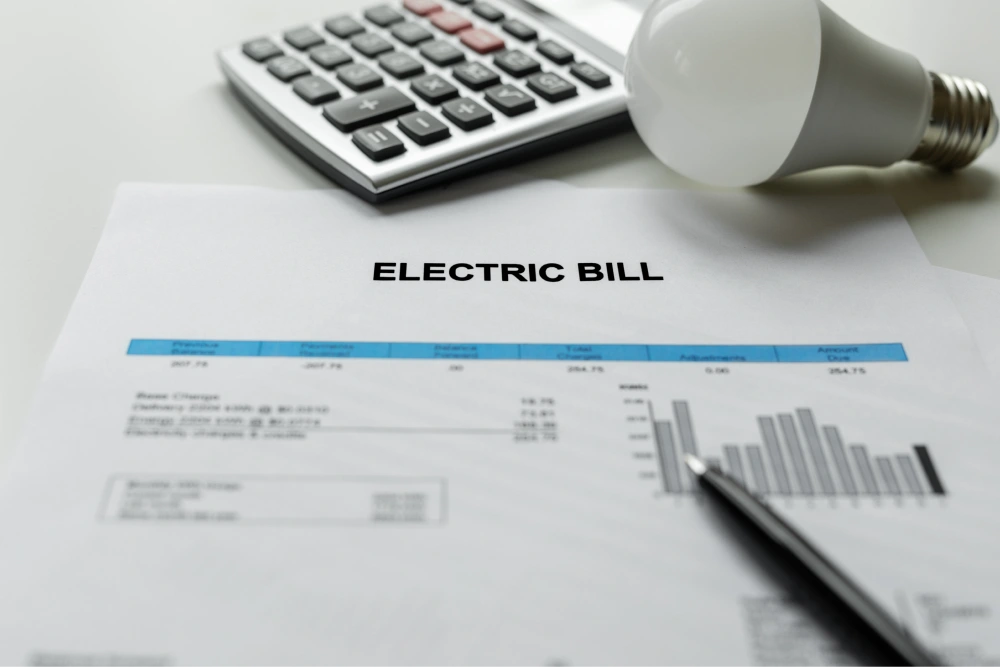When to Sign Up for 3 Month Electricity Plans
2 minute readThree-month electricity plans can be a smart choice if you time them right. In Texas, electricity prices fluctuate throughout the
Home > Learning Center > How the Energy Industry Works > Are Prepaid Electricity Plans a Good Option for Texans?
6 minute read • Last update November 2025

Prepaid electricity plans are not the best option for most consumers. There are many drawbacks to signing up for a prepaid energy plan including higher prices, rates that can change month to month, risk of termination due to lack of funds, and minimum usage fees.
While prepaid plans may allow you to sign up without a credit check, entering your social security number, no long-term commitment, and no termination fee, you are likely to end up spending significantly more on electricity when your bill arrives each month. Prepaid plans can offer very flexibility during the enrollment process, but that flexibility comes at a price.
Prepaid electricity plans allow customers to pay in advance for their electricity, rather than at the end of the month. Prepaid electricity plans have gained popularity in Texas because they allow for:
These benefits can make prepaid plans an attractive option in the short term, but when looking further in the future, prepaid energy plans can hurt in the long run.

One of the key features of prepaid electricity plans is their unique billing structure. Customers pay for their electricity usage upfront, and in return, they receive daily balance alerts that help them keep track of their energy consumption and costs. This pay-as-you-go approach eliminates the need for a traditional monthly bill and allows customers to manage their account balance more effectively.
Customers might find it simple and convenient to recharge their prepaid electric service account. With options to pay from their phone or online when the balance is low, they can even set up autopay to maintain a positive balance consistently. However, if you don’t setup autopay and you forget to pay, you run the risk of lapsing on available funds and your service may be shut off entirely.
Daily account notifications via text message or email might be provided by retail electric providers. This service helps customers closely monitor their electricity usage, energy costs, and account balance. This level of transparency empowers customers to make informed decisions about their energy consumption and make adjustments to save money.
The absence of long-term contractual obligations or commitments stands out as a major advantage of prepaid electricity plans. Unlike postpaid electricity plans that often require customers to sign contracts for a fixed duration, prepaid plans provide the freedom to switch providers or plans whenever desired.
This flexibility allows customers to explore different electricity rates and potentially find better deals without being tied down by long-term agreements. One should consider that prepaid plans might not always provide the same discounts or incentives as traditional plans, and there may be additional fees or charges for customers.
The absence of credit checks and deposits are among the few advantages of prepaid electricity plans. This makes it easier for customers with limited financial resources or varying energy consumption patterns to access electricity without the traditional barriers associated with postpaid plans.
Prepaid electricity plans also provide customers with the opportunity to monitor their energy consumption and expenditure closely.
Moreover, prepaid plans offer:
Despite the numerous benefits of prepaid electricity plans, some potential drawbacks need to be considered. One of the primary concerns is the risk of service disconnection if funds run out. This can be inconvenient, especially for customers who may not be able to recharge their account immediately. During the summer in Texas, it can be incredibly dangerous (especially for children and seniors) to go without electricity to power a home’s air conditioning system.
Another potential downside of prepaid electricity plans is the possibility of higher per-kilowatt-hour rates compared to fixed-rate plans. This means that customers may end up paying more for their electricity usage in the long run, depending on the market rates and their consumption patterns.
Customers should carefully balance the pros and cons of prepaid electricity plans prior to decision-making. While the flexibility and control offered by these plans can be attractive, potential drawbacks such as service disconnection and higher rates should be taken into account. Always read the Electricity Facts Label before enrolling in any energy plan.
A comparison with other options such as fixed-rate electricity plans can aid in better understanding the suitability of prepaid energy plans. This comparison will highlight the differences in billing, contracts, and consumption control, enabling customers to make informed decisions about their electricity needs.
Fixed-rate electricity plans involve a contractual agreement that locks in a set rate for a specified period, offering stability and predictability in energy costs. With these plans, customers can plan their energy costs more efficiently, knowing that their rate will remain consistent throughout the duration of the contract.
This stability can be particularly appealing for customers who prefer to have a clear understanding of their monthly expenses, regardless of market fluctuations. However, one potential disadvantage of fixed-rate electricity plans is that customers may be locked into a rate that is higher than the prevailing market rate. This is why it’s important to sign up for a new plan when rates are low, such as in the spring or the fall.
In comparison, prepaid electricity plans offer greater flexibility and control over energy usage and electricity costs, but may come with the risk of service disconnection and potentially higher rates. The choice between these two options ultimately depends on the customer’s priorities, budget, and energy consumption habits.

Various factors like your budget, energy usage habits, and need for flexibility will determine if a prepaid electricity plan is the right choice for you. For customers with limited financial resources or fluctuating energy consumption patterns, a prepaid plan may be a suitable option.
Additionally, if you value the ability to monitor and adjust your energy consumption in real-time, a prepaid plan can provide the control and transparency you’re seeking. On the other hand, if you prefer stability and predictability in your energy costs, a fixed-rate electricity plan might be a better fit.
A thorough assessment of your individual needs and priorities should ultimately guide your decision to enroll in a prepaid electricity plan. By considering factors such as budget, energy usage, and flexibility, you can make an informed decision that best suits your lifestyle and energy requirements.
Prepaid electricity plans offer a unique and flexible alternative to traditional energy plans, with benefits such as no credit checks, no deposits, and the ability to better manage energy usage and costs. However, potential drawbacks, such as service disconnection and potentially higher rates, should be carefully considered. By comparing prepaid plans with fixed-rate electricity options and assessing your individual needs, you can make an informed decision about the best energy plan for you.
Explore BKV Energy’s affordable and simple fixed-rate energy plans by entering your zip code.
Prepaid electricity plans can come with higher per kilowatt-hour (kWh) rates and more variable rates than traditional post-paid plans, making them potentially less cost-effective. However, prepaid plans can be beneficial for those who want to avoid deposits, late fees, and other charges associated with post-paid plans.
Prepaid plans typically come with significantly higher energy rates compared to a simple fixed rate energy plan and the rate can increase month over month because you are not locked in. While you may avoid a deposit or an early termination fee, your energy bills may eclipse those savings.
Prepaid electricity plans provide flexibility, without any credit checks or deposits, allowing customers to better control their spending and contracts. This type of plan is ideal for those who want to avoid long-term contracts and have more control over their energy costs. It also allows customers to pay for their electricity in advance, which can help them budget
Prepaid electricity plans allow customers to pay upfront for their electricity usage, offering greater control over consumption, whereas fixed-rate plans lock in a set rate for a specified contract term, providing stability and predictability in energy costs. These two types of plans offer different advantages to customers, depending on their needs. Prepaid plans are ideal for those who want to have more control over their energy usage, while fixed-rate plans are better for those who want to have a predictable energy bill.
Graham Lumley, Digital Marketing Manager at BKV Energy, leads digital and traditional marketing strategies, focusing on educating Texans about the state's deregulated energy market. With over 8 years of marketing experience, he creates content to help consumers understand and save on their energy bills, bringing a fresh and dynamic approach to the industry.

Three-month electricity plans can be a smart choice if you time them right. In Texas, electricity prices fluctuate throughout the

Figure out what electricity companies service your home
Get $50 off your electric bill!
Use code BKVEJOINUS50
Enter your zip code to shop BKV Energy's affordable, fixed-rate Texas electricity plans. Use the promo code for $50 off your electric bill.